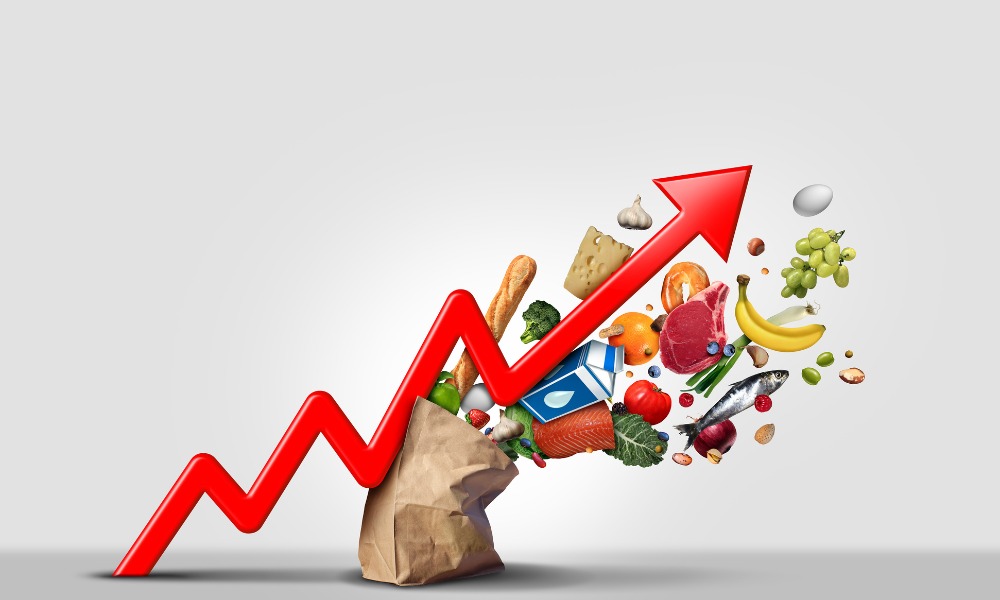Rise in January CPI sparks concerns over future interest rate cuts

The UK’s annual inflation rate climbed to 3% in January, rising from 2.5% in December, according to figures released by the Office for National Statistics (ONS) on Wednesday.
On a monthly basis, the Consumer Price Index (CPI) declined by 0.1% in January 2025, compared to a 0.6% drop recorded in the same month last year.
Core inflation, which excludes energy, food, alcohol, and tobacco, increased to 3.7% year-on-year in January, up from 3.2% in the previous month.
The ONS reported that higher transport costs, along with food and non-alcoholic beverages, drove the monthly rise in the annual CPI rate. Meanwhile, housing and household services contributed the most to the downward pressure.
“Inflation increased sharply this month to its highest annual rate since March last year,” said Grant Fitzner, ONS chief economist. “The rise was driven by air fares not falling as much as we usually see at this time of year, partly impacted by the timing of flights over Christmas and New Year. This was the weakest January dip since 2020.
“After falling this time last year, the cost of food and non-alcoholic drinks increased, particularly meat, bread and cereals. Private school fees were another factor, as new VAT rules meant prices rose nearly 13% this month.”
Consumer Price Index (CPI) rose by 3.0% in the 12 months to January 2025, up from 2.5% in December 2024.
— Office for National Statistics (ONS) (@ONS) February 19, 2025
Read the full article ➡️ https://t.co/qSPpfIkqF9 pic.twitter.com/MTp1HLq0jS
Paul Noble, chief executive of Chetwood Bank, expressed concern over the unexpected inflation rise, warning of renewed financial pressure on households.
“After today’s result, the hope for inflation coming back under control seems short-lived,” he said. “For Britons, this is a troubling setback, with households once again facing rising costs just as they were starting to stabilise.”
He noted that although the increase was partly driven by expected factors such as VAT adjustments and seasonal price changes, these offered “little comfort” amid growing worries about the economy’s fragility. He also pointed out that the Bank of England (BoE) now faces a challenging situation.
“If inflation remains stubborn, further cuts could be delayed, prolonging financial strain for borrowers and businesses,” Noble said. “However, keeping rates higher for too long risks deepening economic stagnation.”
For Mark Eaton, chief operating officer of April Mortgages, a resurgence in inflation is a reminder that the Bank of England is walking a tightrope when it comes to managing interest rates.
“There has been talk of further rate cuts this year, but those predictions feel premature with prices now rising more quickly,” he pointed out.
Like Noble, Eaton also warned that the BoE might hesitate to reduce rates too soon given the risks posed by global economic developments.
“For borrowers, rising living costs will put further pressure on already stretched incomes and compound the affordability challenge impacting buyers across the country,” Eaton said.
Despite these, Simon Woodcock, partner at LAVA Advisory Partners, remained cautiously optimistic, suggesting that inflation’s current level is more manageable compared to previous years.
“We need to keep in mind that, while inflationary pressures are still an issue for consumers and businesses alike, the rate of inflation is not only still significantly lower than it has been for much of the past three years, but it’s also significantly more stable,” Woodcock said.
“We’re no longer experiencing the rollercoaster of shocks of the Trussonomics era, and the stabilising environment, along with the recent reduction to the base rate, is opening up funding options thanks to a lower cost of borrowing. This should hopefully unlock underlying growth, thereby providing a boost to the mergers and acquisitions industry, and particularly the lower mid-market.”
Any thoughts on the latest UK inflation figures? Let us know by leaving a comment in the discussion box at the bottom of the page.



